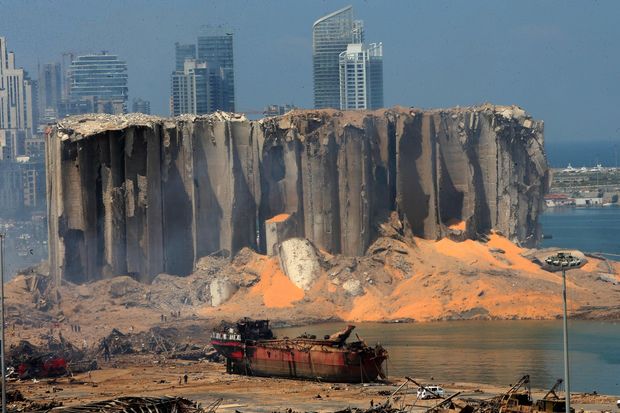
WTO chief Ngozi Okonjo-Iweala warned Friday about the “economic impacts” of the war in Ukraine, a major wheat exporter, which will hurt consumers around the world.
“There’s going to be a big impact with respect to wheat prices and prices of bread for ordinary people as well,” she said at a virtual event with IMF chief Kristalina Georgieva.
Ukraine is one of the largest exporters of wheat in the world, accounting for around 12 percent of global supply, according the U.S. Department of Agriculture.
Georgieva echoed her previous warnings about the “significant economic risk” of the conflict for the global recovery from the Covid-19 pandemic, saying “the impact is going to go beyond Ukraine.” She highlighted the added pressure on inflation which is likely to accelerate amid rising prices for energy and wheat.
Oil prices on Thursday briefly topped $100 for the first time since 2014.
The United States and Europe slapped sanctions on Moscow, targeting the financial sector but largely sparing the oil and agriculture sectors for now in an effort to mitigate the impact on their own people.
The sanctions “add to the economic impact of this crisis, and will transmit primarily through energy prices, as well as grain prices, adding to what has been a growing concern of inflation and how it can be countered,” the IMF chief said.
The conflict adds to the “high uncertainty” about the global economy that also is reflected in financial markets, and undermines confidence in other emerging markets causing an exodus of capital at a time when those countries need more funding.
“We see outflows from emerging markets when we need exactly the opposite,” she said.
Georgieva, who is Bulgarian, said she had a personal connection to the crisis, as her brother is married to a Ukrainian and they are in a city near the border with Russia.
Lebanon and the Middle East
Russia’s invasion of Ukraine could mean less bread on the table in Egypt, Lebanon, Yemen and elsewhere in the Arab world where millions already struggle to survive.
The region is heavily dependent on wheat supplies from the two countries which are now at war, and any shortages of the staple food have potential to bring unrest.
If those supplies are disrupted, “the Ukraine crisis could trigger renewed protests and instability” in several Middle East and North Africa countries, the Washington-based Middle East Institute said.
The generals now ruling in Khartoum after an October coup have not forgotten: In 2019 one of their own, Field Marshall Omar al-Bashir, Sudan’s longtime autocrat, was toppled by his military under pressure from mass demonstrations triggered by a tripling of the bread price.
Concerns about wheat reflect the rippling effect of Russia’s invasion of Ukraine. The Lebanese government is in talks with other countries like the United States, India and Canada to provide wheat amid concerns of global disruption to wheat supply during the crisis, the Minister, Amin Salam, said.
Ukraine is one of the largest exporters of wheat in the world, accounting for around 12 percent of global supply, according the U.S. Department of Agriculture.
“Only about a month’s worth of wheat can now be stored at a time in mills as a result of the blast that destroyed the country’s port, shredded its grain silos , killed over 218 people, injured about 7000 people and left 300, 000 homeless”, Lebanon’s economy minister Amin Salam, said. on Friday.
Ukraine accounts for up to 60 percent of the crisis-hit country’s wheat market, Salam said
The Lebanese government is in talks with other countries like the United States, India and Canada to provide wheat amid concerns of global disruption to wheat supply during the crisis, Salam, added
Agencies


Leave a Reply
You must be logged in to post a comment.